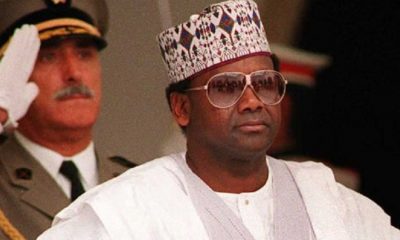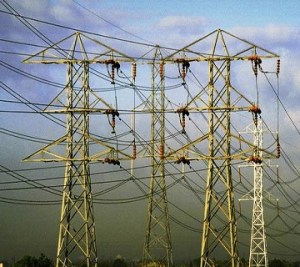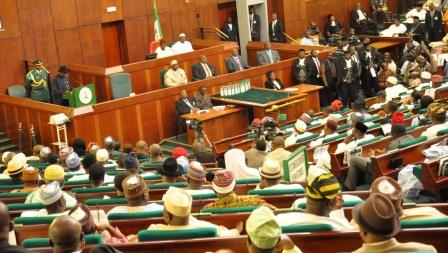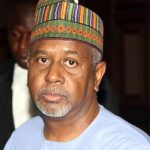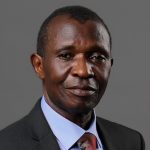Feature/OPED
Tinubu Must Solve That Power Problem
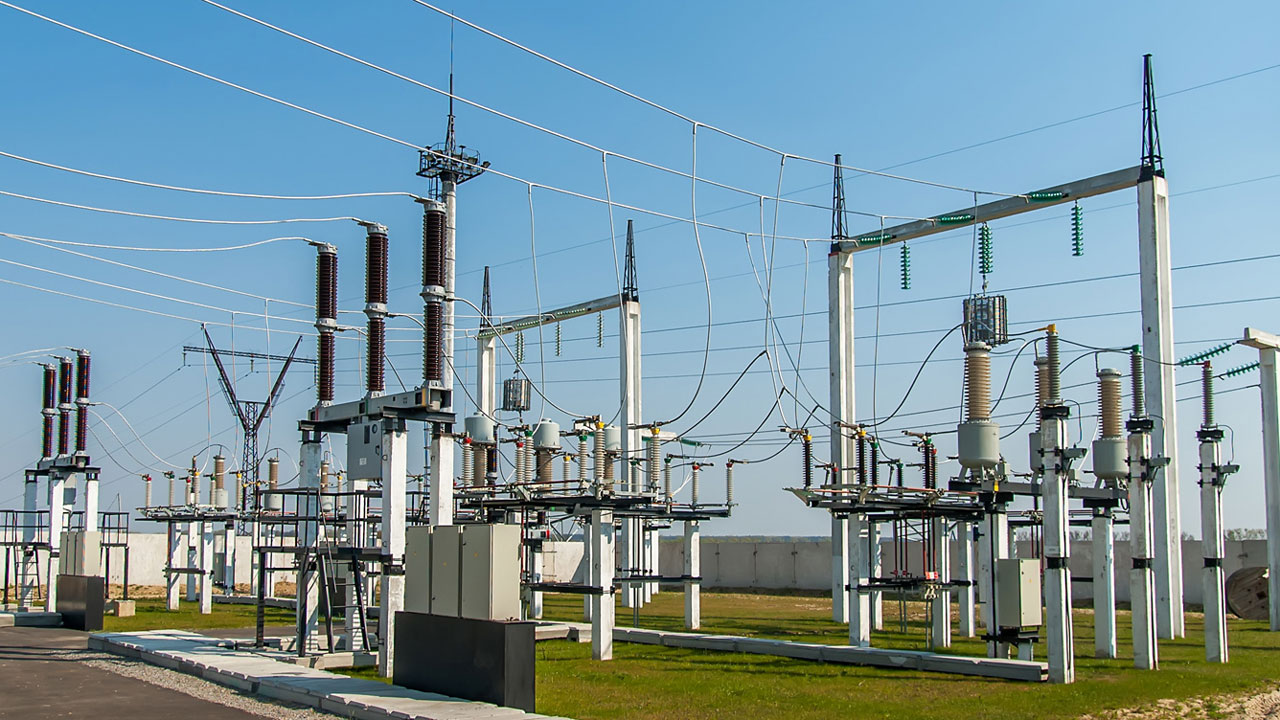
By Prince Charles Dickson PhD
Quickly last week, my office premises and environs did not have electricity, and a few steps from my office is the Jos Electricity Distribution Company. The company is one I did rate a four out 0f 10 which by any standards is fair enough. So, they were powering the office with a generator, yes, you heard me, generator.
And I have seen this scenario once or twice, but it just occurred to me that we are not well as a people. However, truth be told, worse things have happened.
A few years ago, the Bureau for Public Enterprise BPE sold NITEL, the nation’s elephant telecom company, to a building in Switzerland; it was a building housing a church, all the dance and drama. We soon let go. Just a reminder, it was called PENTASCOPE. Years later, the father of a white cloth-wearing former Honourable bought the NITEL House…The NITEL story remains a tale by moonlight, plenty of lies, half-truths, misinformation, propaganda, a potpourri of sorts.
How about the Steel Rolling Mill in Jos, Plateau, it was ‘racketered’ in that sweet-sounding word privatization. Some journeymen bought all the assets and renamed it Zuma. Today, the only functional thing is the housing estate. The factory and machines have long been vandalized.
There was that drama of the Daily Times, publishers of that old-time newspaper. Before I go far, a former Managing Director of the once pride of publishing told me, “Charlie, Daily Times is like a big elephant; everybody comes and cuts his/her own and goes away.”
You need to appreciate that statement in context; at a time in point, Daily Times had properties virtually everywhere Nigeria had a presence in the world. All that changed; what is left of the elephant was sold to some clowns, and the rest is history…the elephant eventually slumped.
Let me spare us the story according to Nigerian Airways, the Nigerian Shipping Lines, or our textile industry in Kaduna state!
Anyway, my admonition is on our power sector, the Buhari administration is leaving a sector comatose after promises that the power supply would get better, and indeed on some odd occasions, I and many Nigerians have enjoyed more than 8 hours of electricity. But don’t forget; it was not the norm; it was an exception. The President, his aides, and ministers made pledges but delivered very little in this respect.
I will put it in context, almost 200% increase in tariffs in 8 years, with more than 100 nations still paying cheaper for electricity, and depending on who’s statistics you are looking at, we have spent over N7 trillion on our power sector since 1999, with the bulk of that finding itself in private pockets.
We don’t have enough electricity but under the WAPP initiative to promote and develop power generation and transmission infrastructures as well as to coordinate power exchange among the ECOWAS member states. Nigeria currently supplies electricity to the Republic of Benin, Togo, and Niger.
The economic loss due to grid collapse is almost 3% of the nation’s Gross Domestic Product (GDP).
I recall the drama of Enron, a failed American company that was reckless in its use of derivatives and special purpose entities. Mr Tinubu, the incoming President, started the IPP project in Nigeria with Enron, then in Lagos. It is noteworthy that he was the first to challenge the monopoly of NEPA. He conceptualised the bulk purchase agreement. Obasanjo stopped the implementation. We wait to see what lies in wait and fate…
Put in perspective, with 12 Turbines, the Mambilla Hydroelectric Power Station is a 3,050 MW hydroelectric power project under development in Nigeria. When completed, it will be the largest power-generating installation in the country and one of the largest hydroelectric power stations in Africa. It is still 6 years away from the expected completion date of 2030 and costs $5.8 billion.
For those that did not know, the Mambilla hydroelectric project was originally conceived in 1972; it could advance only after 35 years when China’s Gezhouba Group awarded a contract to develop the project with 2,600MW installed capacity in 2007, all still na voicemail.
At 50 years old, Kainji hydroelectric dam is the oldest functioning power plant in Nigeria. Kainji is one of 3 major dams in Niger state. The others are the Jebba Dam (1985) and the Shiroro Dam (1990). A fourth dam is currently under construction at Zungeru.
The Federal Government, in February 2023, announced the preferred bidder for the concession of the 700 megawatts Zungeru Hydroelectric Power Plant for a fee of $70,000,251 per year for 30 years
We have blamed witches for power outages. We have since forgotten the Minister who resigned and the controversies surrounding all that power scams.
And then the many Chinese loans taken, yet we are on the same track; the Power Holding Company of Nigeria has been sold, and the drama continues. But if you know Nigerians and Nigeria, it is only a repeat episode, nothing new.
Most of the owners bought PHCN properties for peanuts. Owners that have no required expertise, distribution companies aptly called DISCOs that see the venture as new ‘oil wells’ dancing around our collective psyche.
Looking at the best efforts of the government or the DISCOs, I recall those days when we read the novel by Adaora Ulasi, many things we don’t understand. What captivated me then was not just the story but that title.
Yet, from PHCN to NEPA, one-time ECN for those old enough to remember. Now Distribution Companies, the power sector and these Discos repeat episodes of things we never may understand.
Why can’t we get 22 hours of electricity in a nation with so many resources both human and financial? Like how do we expect to get the desired megawatts with generating and transmission points that are run like Lugard lamps?
Only last year, a handful of men put the whole nation in darkness in the name of a power strike. No one cared about the loss of those hours that the nation was left in the dark. We still suffer high voltage—electric gadgets bear the brunt; no one is held liable, and then low current—you can barely see, so there is electricity, but it cannot power a bulb.
The transmission company people are doing loads of hard work, but truly it amounts to nothing when there are many questions and no answers; I agree that we are a difficult people; it is probably only in Nigeria that PHCN owes NNPC for fuel supplied, and NNPC has not paid for electricity supplied and state houses owe utility bills, while citizens that have not paid bills in years have power as long as there is the power to spare.
I do not need to lecture us on the benefits derivable to the Nigerian economy if we sort out our electricity palaver. I must state the solution does not lie in Chinese, World Bank loans or Private Partnerships but in a strong political will by leadership.
If and if only Mr Tinubu can lay the groundwork for solving the power problem, to address the energy palaver, to direct his energy to the octopus-like the Ajaokuta Steel Rolling Mills, just solve the power problem, posterity will judge him fair, but as it is—only time will tell.
Feature/OPED
Warri, a Distressed and a Dying City
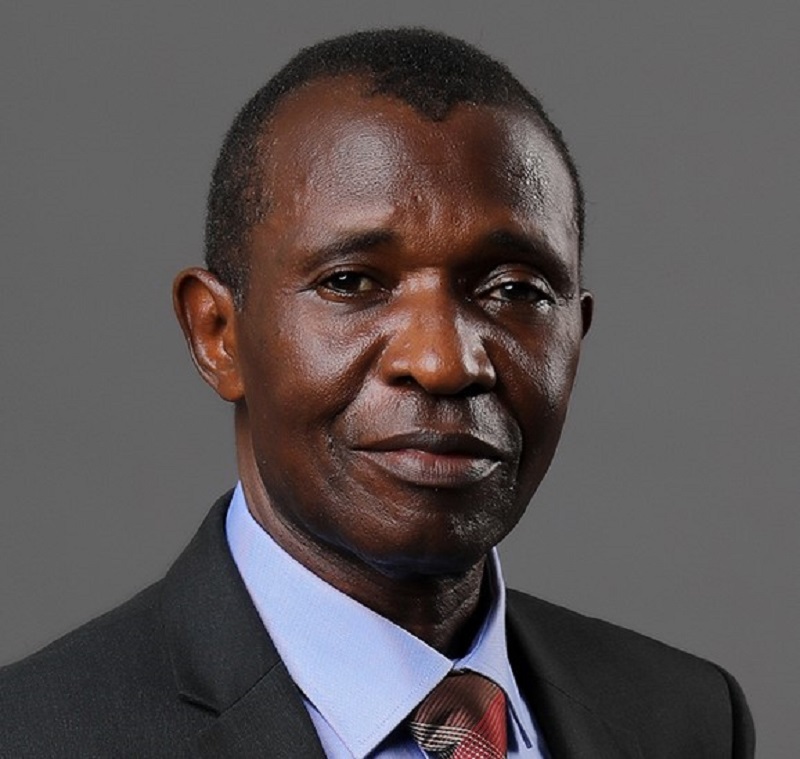
By Michael Owhoko, PhD
Who will restore Warri back to its glorious days? A city that was once the pride of all Wafarians, is now a shadow of itself, rusty and reeking with aroma of poverty occasioned by systemic decline with people cocooned in deprivation and squalor.Warri is allusively known as Wafi, making the people and residents of the city identified as Wafarians.
I was close to tears during my recent visit where I toured the length and breadth of Warri, covering Deco Road, Okumagba Avenue, Okere Road, McCiver, Odion Road, Market Road, Cemetery Road, Iyara, McDermott Road, Warri-Sapele Road, Upper and Lower Erejuwa, Ajamogha, Esisi, and Warri Port. I stayed for over two months, the longest since my relocation to Lagos in 1984.
All I saw was a distressed and a dying city with shattered dreams, shrinking hopes, and diminished opportunities induced by capital flight and economic disorders. It is a metaphor for youth unemployment, dwindling aspirations, and social chaos, where people just labour under profound deficit constrained by rationed resources, owing to lack of fresh capital from investors.
Indeed, Warri is choking from severe economic dehydration, with all available spaces in front of buildings converted into small shops where people engaged in petty trading and POS businesses, making the whole streets look like mini-markets. This is further worsened by the large number of keke tricycles almost outstripping the populace with attendant heavy noise emission. Even the dead have no peace in Warri as the entrance to the only cemetery in the town has been overtaken by petty traders, and keke tricycles mechanics, leaving a small gate forentry.
How did such a once vibrant cosmopolitan city that attracted global presence, including investors, and played host to several notable national and international events, degenerated into a rural enclave with dilapidated structures? What went wrong, and who created the mess which have betrayed the values and ideals that once held Wafarians together in unity and love?
While it is easy to link Warri’s stunted growth to the unending ethnic rivalry among the Itsekiris, Urhobos and Ijaws, for posterity, it is also important to specifically identify those, whose actions, directly or indirectly,have contributed to the city’s appalling condition, which has brought shame and embarrassment to the collective psyche of Wafarians.
First, the opposition of Warri as capital of Delta State at the creation by Itsekiri leaders, led by His Royal Majesty, the Olu of Warri, AtuwatseII, have done more harm to the general good of Warri, and setting the city backward. The deficit outcome has made the motive designed to protect the Itsekiri’s ethnic interests pale into insignificance.
What is the gain of this stand within the context of development, other than fear of Urhobo domination, and the need to thwart it? This was an obvious delusion, and no amount of rationalization can justify the mess that has eclipsed Warri. It was a miscalculation. Sacrificing the city’s progress on the altar of narrow ethnic interest was a tragedy.
Unfortunately, former military President, Ibrahim Babangida (IBB) further complicated the matter when he failed to demonstrate objective governance, taking advantage of the Itsekiri’s disapproval of Warri as capital to illogically site the capital of Delta State in Asaba, hometown of his wife. It was the height of absurdity in decision making, and a study in bad leadership.Had the ethnic trust deficit in Warri been bridged and the ethnic groups unite to demand Warri as capital, the city would have been better transformed with infrastructural advantage typical of a modern capital city, attracting foreign investors, to the benefit of all.
Second, the unending contention over ownership of Warri township among Urhobos, Itsekiris and Ijaws, over the years, have continued to promote ethnic animosity and discord, contributing immensely to the backwardness of the city. Those who started this tussle have since passed on, without adding any value to their respective ethnic groups.Sadly, this bitter ethnic rivalry is being passed on to succeeding generations, who have foolishly continued in this trajectory to spread hate, rather than live in harmony as neighbours, to achieve enduring peace and development in Warri.
It should be noted that these ownership claims are exercise in futility, as either of these ethnic groups, can practically dislodge one another to take physical possession of any habitation. For example, just as it is practically impossible for the Urhobos to evict the Itsekiris from Okere, it is also unrealistic for the Itsekiris to dispossess the Ijaws of Ogbe-Ijaw land.
And so, brandishing colonial and post-colonial court judgements and papers as proof of ownership, is insignificant and waste of energies. The three ethnic groups must bury their pride and ego, and live together peacefully as Wafarians, bound by common cultural affinity, so that Warri can experience peace and progress again.
Third, ethnic leaders that directly or indirectly encourage and incite their youth to resort to violence, and sometimes, carry arms to threaten, destroy or kill their neighbours over land, have nothing to gain other than misery and poverty. Ironically, it is the innocent children of the poor that are used for such senseless conflict, while the children of the rich, enjoy comfort in safe haven in faraway Lagos, Abuja, London, USA or Canada.
Besides, the parents of most of these gullible youth being used to perpetuate these crimes, have no ancestral root, and properties in Warri township. Destruction and mayhem only leave in their trail, economic decline, unemployment, anguish, suffering, hardship and poverty, as investors will flee with their capital from a hostile environment, as shown with the exit of numerous companies in the city.
Lessons ought to have been learnt from the Ijaw-Itsekiri conflict which lasted from 1997 to 1999 over siting of Warri South West Local Government Area Headquarters. At the end of that war, both parties counted only losses, no benefit, no value addition, and no reward. Regrettably, companies that were hitherto sources of sustained fresh capital in Warri, relocated to other cities, bringing lackand despair to Warri and its environs. There must not be a repeat of such a senseless ethnic war, as Warri may never survive a second experience.
The effect of the Ijaw-Itsekiri fight led to exit of companies like Pan Ocean, Schlumberger, Halliburton, Shell Petroleum Development Company, (SPDC), ELF, Conoco-Phillips, Agip, WEAFRI, NISSCO, Globestar, McDermott, DBN, WESCO, Hercules Offshore Nigeria, Nigeria Dredging & Marine, LAMNALCO, and Dunlop.
Others include Saipem, Seismograph Services Limited, Snamprogetti, Dowell, Anadrill, Baroid, Santafe, Oceaneering, Kingsway, Leventis, West Minster Dredging, John Holt, SCOA, Glorylux, United African Company (UAC), Mandillas, Nestoil together with maritime and shipping firms located inside the Nigerian Ports Authority, Warri.
The companies not only left with their investment; they also left behind high unemployment rate of approximately 80 per cent in Warri. Except for Chevron Nigeria Limited, and perhaps, recently, Tantita Security Services Limited, through which fresh funds are being injected into the economy of Warri, the condition of the town would have been catastrophic.
Fourth, those that engage in collection of “deve” (development) fee as precondition for commencement of project, and also, who forcefully demand employment and contract slots from companies, have also contributed to the poor condition of Warri. By their actions, companies, including small business enterprises and individuals, are frustrated and discouraged from establishing businesses in the city, thereby compounding the unemployment burden.
Fifth, the non-operational Warri Port has also added to the economic hardship in Warri. Ocean-going vessels that used to berth, servicing business interests in neighbouring Effurun, Udu, Benin City, Onitsha, Asaba, and the environs, are no more. This is further worsened by the collapse of adjoining companies like the Delta Steel Company, Owvian-Aladja and Warri Refinery and Petrochemical Company, Ekpan, which has taken a huge toll on Warri life.
It is, therefore, imperative for the ethnic groups to redirect their energies to promote peace and unity, in order to restore investors’ confidence.The Ijaws, Urhobos and Itsekiris’ leaders can also leverage their common cultural ties, as expressed in food, clothes, trade, history, and festivals to boost Warri’s economy. For example, Warri cultural celebrations like Agbassa Juju (Idju Owhurie Festival) and Okere Juju (Awankere Festival) can be bolstered and turned into major tourists’ destination, as part of strategy to make Warri great again.
Dr Mike Owhoko, Lagos-based public policy analyst, author, and journalist, can be reached at www.mikeowhoko.com, and followed on X {formerly Twitter} @michaelowhoko.
Feature/OPED
Why Youth Engagement is Nigeria’s Agricultural Imperative

By Diana Tenebe
Nigeria stands at a critical juncture, faced with a demographic reality that is both its greatest asset and a significant challenge. With a population where almost 70% are under the age of 30, the nation’s future is undeniably in the hands of its youth.
Yet, the agricultural sector, the traditional backbone of the economy, is in a state of crisis, with an aging farming population and a notable disinterest from the younger generation. This disconnect poses a serious threat to our food security, economic stability, and long-term sustainable development. To navigate this, Nigeria must embark on a deliberate and multi-faceted mission to transform agriculture from a career of last resort into a dynamic, profitable, and respected profession for its youth.
The perception of farming as a life of drudgery, poverty, and limited opportunity is deeply ingrained in the minds of many young Nigerians. This is not without reason. The sector is often associated with backbreaking labor, outdated methods, and significant financial risk. The lack of access to land, credit, and modern technology creates a formidable barrier to entry, pushing aspiring young people towards often non-existent or poorly paid urban jobs. This exodus from rural areas exacerbates the issue, leaving an agricultural sector in need of fresh ideas and a renewed workforce.
To reverse this trend, we must begin by transforming the very image of agriculture. Education is the key. Integrating agriculture, food, and nutrition into the national curriculum from primary school upwards can fundamentally change how young people view the sector. By making it a compulsory subject in secondary schools, we can equip students with practical knowledge and foster an appreciation for the vast opportunities within the food system. School gardens and ‘Farm to School’ initiatives can provide hands-on experience, connecting young minds with the processes of food production and the rewards of a healthy community. By promoting farming as a business, not just a means of subsistence, we can highlight its potential for profitability and professionalism.
Crucially, young Nigerians need to see that success in agriculture is not just possible, but a reality. Showcasing successful young farmers and agripreneurs through media campaigns, documentaries, and digital platforms like Agribusiness TV can provide powerful role models. These stories of innovation, resilience, and financial success can inspire a new generation to reconsider their career paths. Peer-to-peer learning, where successful young farmers share their evidence-based success, is an effective way to demonstrate the viability of modern agricultural practices and encourage others to follow suit.
Beyond changing perceptions, we must address the tangible barriers to entry. Access to finance is paramount. Innovative funding models, including grants, subsidies, and venture capital funds specifically for young agricultural entrepreneurs, can ease the initial burden of starting an agribusiness. Policy reforms that simplify land acquisition and promote cooperative farming models are essential to ensure young people have access to the resources they need. Furthermore, providing training in technical, business, and financial literacy will empower them to develop robust business plans and attract investment.
Perhaps the most potent tool for attracting Nigeria’s tech-savvy youth is technology itself. Modern agriculture is a far cry from the old-school image of a farmer with a hoe. Digital technologies, from mobile apps that provide real-time market prices to blockchain for product traceability, can connect young farmers directly to markets and streamline their operations. The introduction of technologies like hydroponics, aquaponics, and automated farm machinery not only reduces drudgery but also offers attractive, quick-return opportunities. By promoting agri-tech startups and establishing ICT training centers for rural youth, we can position agriculture as a hub of innovation.
The government has a vital role to play in fostering an enabling environment. Initiatives like the National Young Farmers Scheme and partnerships such as the one between the Federal Government and Niger State to empower 100,000 youths are commendable steps. Continued public investment, alongside the involvement of youth in policy dialogue, will signal a genuine commitment to their future in the sector.
Engaging Nigeria’s youth in agriculture is not merely an option—it is a national imperative. By transforming perception, enhancing access to resources, and leveraging technology, we can unlock their immense potential, ensuring a sustainable and prosperous future for the entire nation. The time to act is now.
Diana Tenebe is the Chief Operating Officer of Foodstuff Store
Feature/OPED
Artificial Intelligence: The Indispensable Catalyst for Nigeria’s Agricultural Revolution

By Diana Tenebe
Nigeria’s agricultural sector, a cornerstone of its economy, faces a critical crossroads. While employing a staggering 40% of the population and holding over 84 million hectares of arable land, the industry is hobbled by deep-seated challenges. Low productivity, a fragmented supply chain, poor infrastructure, and a lack of access to financial services are just a few of the hurdles that prevent the sector from reaching its full potential. Coupled with the unpredictable and severe shocks of climate change—from prolonged droughts to devastating floods—these issues threaten the food security of a rapidly growing population.
To truly transform this vital sector, a new approach is needed, one that moves beyond traditional methods and embraces the power of technology. Artificial Intelligence (AI) is not just a futuristic buzzword; it is the imperative for Nigeria’s agricultural revolution. AI holds the key to unlocking higher yields, building resilience, and fostering an inclusive and sustainable food system that can feed a nation and drive economic growth.
The most immediate impact of AI is in the area of precision farming. By integrating AI with technologies like Internet of Things (IoT) sensors, drones, and satellite imagery, farmers can gain an unprecedented understanding of their land. AI-powered systems can analyse real-time data on soil moisture, nutrient levels, and plant health, providing actionable insights for targeted interventions. For instance, smart irrigation systems can optimize water usage, a critical resource in a country facing increasing water scarcity. AI-enabled drones can survey vast farmlands in minutes, identifying early signs of pests or disease and allowing for precise application of pesticides, reducing chemical use and cost. Early trials of these technologies in Nigeria have already demonstrated significant gains, with some reports showing a remarkable 60-70% increase in crop yields.
Climate adaptation is another area where AI’s role is indispensable. Nigeria’s farmers are on the front lines of climate change, enduring erratic rainfall and extreme weather events. AI can provide a shield against this volatility. By analyzing historical weather data and real-time forecasts, AI models can offer accurate, localized predictions. This allows farmers to proactively adjust their planting schedules, select climate-resilient crop varieties, and plan for potential risks, effectively mitigating the devastating impact of droughts and floods.
The economic benefits extend far beyond the farm gate. A significant portion of Nigeria’s agricultural produce is lost due to an inefficient and fragmented supply chain. AI can streamline logistics, optimize transportation routes, and enhance inventory management. By reducing spoilage and waste, AI ensures that more of what is harvested reaches the market, thereby boosting the incomes of farmers and providing a more stable supply of food for consumers. The success of Nigerian agritech companies like Crop2Cash, which has reportedly helped over 500,000 farmers increase their income by up to 70%, demonstrates the tangible economic impact of these technologies.
AI is a powerful tool for promoting financial inclusion and education. Millions of smallholder farmers, who form the backbone of Nigerian agriculture, are often excluded from formal financial systems due to a lack of collateral and credit history. AI-driven fintech solutions can bridge this gap by assessing creditworthiness using alternative data, making it easier for farmers to access the loans and insurance they need to scale their operations. AI-powered mobile apps and chatbots can also serve as virtual extension agents, providing personalized advice on best farming practices, pest control, and crop management, democratizing knowledge and empowering farmers to make better decisions.
Despite this immense potential, the journey towards widespread AI adoption is not without its hurdles. High upfront costs for AI-enabled equipment, a general lack of understanding and experience with these tools, and a preference for traditional methods are all significant barriers. Furthermore, infrastructural gaps, including poor roads and inadequate storage facilities, hinder the seamless implementation of these technologies. Data availability and computational capacity are also key challenges that need to be addressed.
However, the Nigerian government and a burgeoning ecosystem of agritech startups are already paving the way forward. The government’s vision is articulated in initiatives like the National AI Strategy, which aims to establish AI research centers and support R&D. Programs such as the Nigeria Artificial Intelligence Research Scheme (NAIRS) and the NITDA AI Developers Group are building the necessary skills among entrepreneurs and farmers. Strategic partnerships between government bodies, financial institutions, and innovative startups are creating localized solutions that are tailored to the unique conditions of Nigerian agriculture.
Ultimately, AI is not a luxury but an imperative for Nigeria to unlock its agricultural potential. Its successful integration will transform the role of the farmer from a manual laborer to a strategic planner and overseer of a smart, efficient, and sustainable food system.
By investing in infrastructure, fostering strategic partnerships, and prioritizing education and capacity building, Nigeria can harness the power of AI to feed its people, drive economic prosperity, and secure its place as a leader in the African agricultural revolution.
Diana Tenebe is the Chief Operating Officer of Foodstuff Store
-

 Feature/OPED6 years ago
Feature/OPED6 years agoDavos was Different this year
-
Travel/Tourism9 years ago
Lagos Seals Western Lodge Hotel In Ikorodu
-

 Showbiz3 years ago
Showbiz3 years agoEstranged Lover Releases Videos of Empress Njamah Bathing
-

 Banking7 years ago
Banking7 years agoSort Codes of GTBank Branches in Nigeria
-

 Economy2 years ago
Economy2 years agoSubsidy Removal: CNG at N130 Per Litre Cheaper Than Petrol—IPMAN
-

 Banking2 years ago
Banking2 years agoFirst Bank Announces Planned Downtime
-

 Sports2 years ago
Sports2 years agoHighest Paid Nigerian Footballer – How Much Do Nigerian Footballers Earn
-

 Technology5 years ago
Technology5 years agoHow To Link Your MTN, Airtel, Glo, 9mobile Lines to NIN



